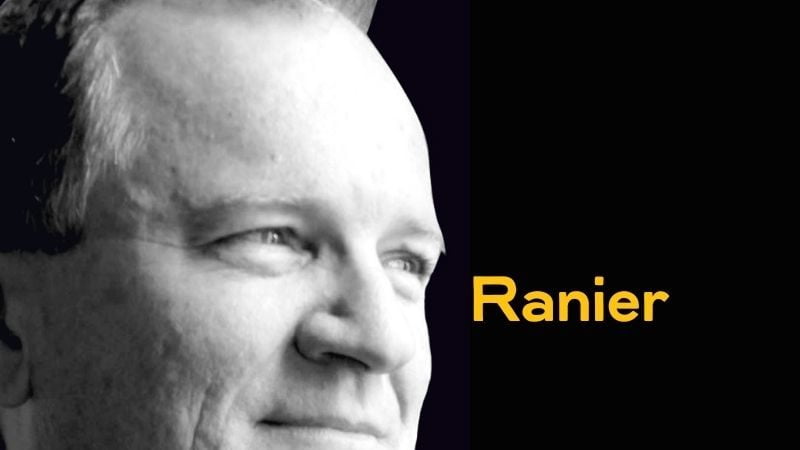Robert Abela’s place in history was already secure. Here, finally, is a prime minister who rules the waves — ocean waves, corona waves, they’re all just waves to him. Now, however, we know that was just the start.
Abela also waves the rules (unlike Joseph Muscat, who waived them). He wants his unruly critics to know that we are a nation of rules, not rulers, and he’s ready to wave the rule-book. And if no one had heard of this or that rule, he will educate them.
Earlier this month, Nationalist MP Ivan Bartolo posed a Parliamentary Question (PQ). How much did the Office of the Prime Minister spend on the media and publicity since 2017?
Abela set him straight. He waved the rule book at Bartolo: He wasn’t going to answer that question since it exceeds the ‘advisory cost limit’. In other words, it was disproportionately expensive to collect the information necessary to answer it.
As an answer it was firm, robust, practical — and referred to a rule no one in Parliament had heard of.
People who have been in Parliament for a quarter of a century have never heard it invoked. The Speaker has confirmed the Maltese Parliament doesn’t have it. It’s a rule that some other countries have, such as the UK and Australia. We don’t.
We don’t need to waste time discussing what’s at stake. You might not have a burning desire to know the details of the OPM’s propaganda expenditure. Still, PQs should be answered. What’s the point of having a Parliament?
Parliaments take PQs so seriously that all are vetted. That way, they can’t be swatted away for impropriety.
No parliament is a stranger to ministers dodging PQs. Delays in replying, vague answers, whataboutery: all part of the standard global repertoire. But invoking a hitherto unknown rule?
That is arbitrary. It means the prime minister can just adopt rules to block a question asking for transparency. Rules become an excuse to turn us further into a country under a ruler.
What to do? Bartolo asked the Speaker for a ruling on Abela’s answer. The Speaker, essentially, gave a Maltese shrug.
What he actually gave was a three-point answer. Yes, Bartolo had asked a proper question. The prime minister had invoked a rule used by some other parliaments that follow the same model we do. We don’t have the rule (it’s not part of standing orders) but, by tradition, Speakers do not comment on the adequacy of a minister’s answer.
True, it’s left to MPs to follow up with other questions. But I’d have thought that a Speaker would be interested in a sudden rule that directly affects what questions are answered in the House over which he presides.
Advisory cost limits are set by governments. But who decides whether such a cost limit exists? Parliament or government? If it’s government, when did government decide? Why was Parliament not informed, since it has a bearing on which and how questions are asked?
If we are to follow other parliaments in having such a limit, then let’s remember that such limits are not vague. They are set using a transparent formula. Changes in the limit are announced. The limit only applies to written questions, not oral ones.
Is Abela following all these criteria?
The advisory cost limit is set by taking the average cost of answering a PQ. It’s the ‘marginal cost’, meaning all fixed costs are not counted. You only count the additional cost it takes for staff to gather and collate the information needed by a minister.
In the UK, surveys are carried out to calculate the average marginal cost of a PQ. In 1988, it was £33. In 1991, £50. In 2002, £75, and so on.
In the UK and Australia, the cost limit is set by multiplying the average cost by eight (and rounding to the nearest £50). Currently, in the UK, the limit is £850. It was last increased in 2012. But in previous years it was increased every two or three years, usually by £50 each time. PQs are asked about whether the cost limit is due for an increase.
Two brief final points. Ministers can still decide to answer a question even if it’s expensive. They are in any case encouraged to provide any partial information they may have, even if they decide it can’t be answered fully.
The next PQs to put to Abela should address the average marginal cost of a PQ. In which year was it surveyed? What is it? What formula is being used to calculate the advisory cost limit? What is the advisory cost limit currently?
It can’t be expensive to answer these questions. True, Abela’s office, industriously working on good governance, has ignored questions on this from The Shift. But, surely, Abela must have this information at his fingertips.














He’s not waiving the rules; he’s simply making them up to suit his requirements.
Be sure not to pay custom duty as unnecessary to the privileged. The ordinary people dig deep in their pokets to pay for advice and tax and vat included.
One of the safety advices repeatedly given by the Health Authorities to avoid Covid-19 infection – “wash you hands thoroughly, at least for 20 seconds, or (for the attention of children, especially) sing ‘Happy Birthday’ twice while scrubbing”.
‘Washing one’s hands’ of embarrassing answers or decisions seems also mightily advisable on occasions!!
If, as the Malta Government has done, you spend millions on accounting systems, this information is available at the push of a button. Either that or the configuration is incompetent or corrupt. There is no other excuse not to produce the figures. All hogwash.